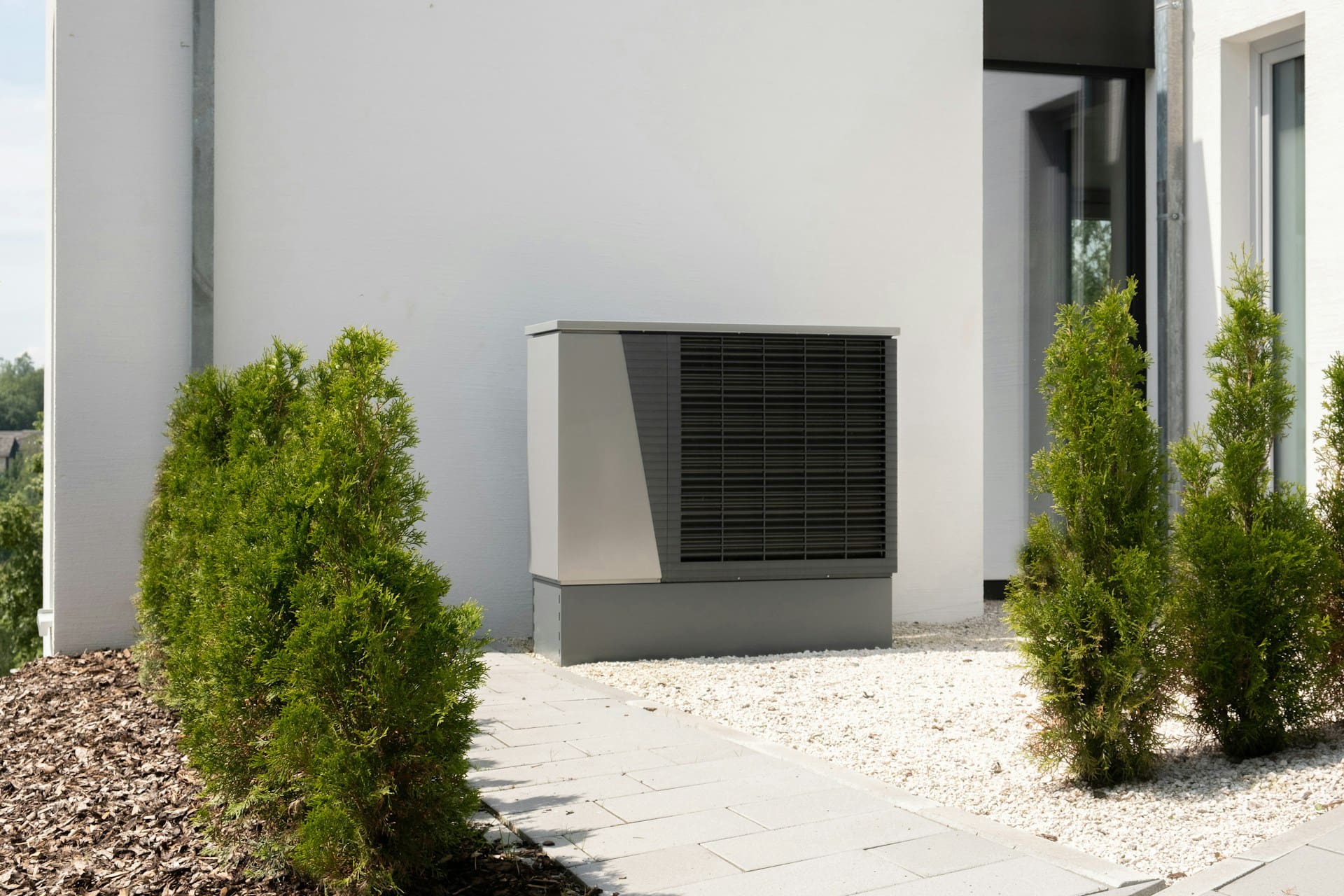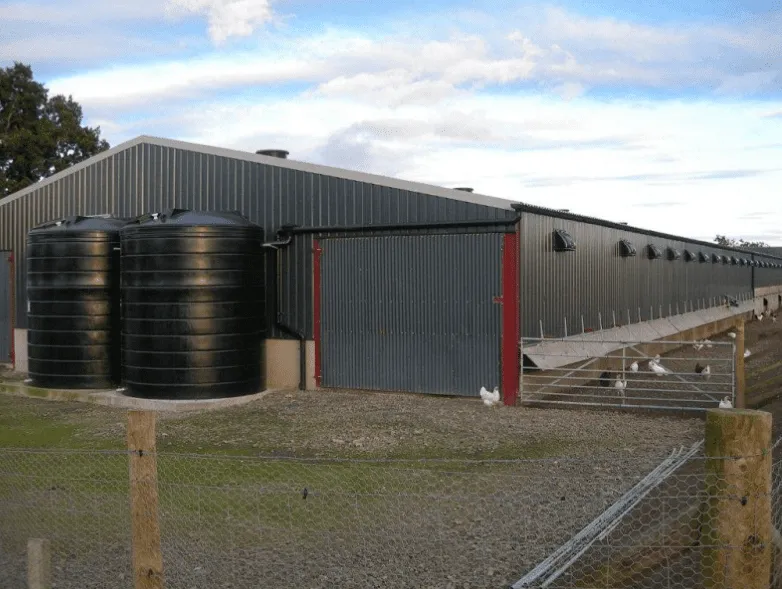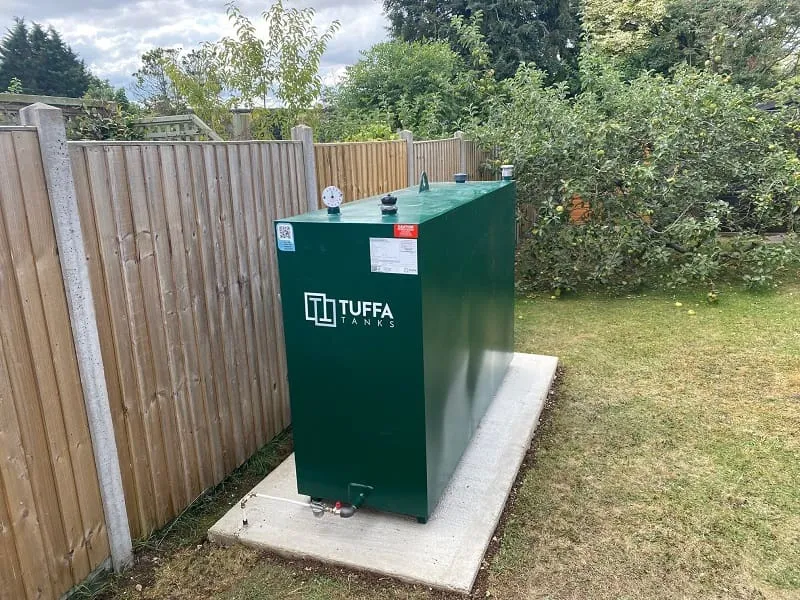Read our Expert Guide to AdBlue® Tanks for information, advice and industry insights covering everything from AdBlue® consumption for your vehicle, AdBlue® storage regulations and guidance. What makes us experts? We’ve been manufacturing bulk storage tanks for over 30 years. Our AdBlue tanks are used by hundreds of private fleet operators and in public forecourts throughout Europe including as an exclusive tank range for one of Europe’s leading AdBlue producers and suppliers. In this guide, we’ve collated vital information you need to know when considering the purchase of a bulk AdBlue® storage tank.
What is AdBlue® and what is it used for?
AdBlue® is a solution of high-purity urea (32.5%) and deionized water (67.5%). In a process called Selective Catalytic Reduction (SCR) AdBlue® is injected into the exhaust of diesel vehicles which significantly reduces the level of nitrous oxide released into the atmosphere. With the UK’s aim to become carbon neutral by 2050, and the European emissions limits becoming increasingly stringent, more vehicles are using AdBlue® to reduce their emissions.
What are AdBlue® storage tanks used for and who uses them?
AdBlue® storage tanks are commonly used by businesses that use fleets of diesel vehicles as an integral part of their operations. An example of this is companies in the transport industry who required onsite AdBlue® storage to fill up HGVs and LCVs. However, with each new iteration of the emissions standards become more stringent, industries such as construction and agriculture are using SCR technology.
What AdBlue® storage tanks are available?
We manufacture a range of polyethylene AdBlue® storage tanks in capacities from 1,350 to 15,000 litres. These tanks are bunded and available with dispensing equipment or as holding tanks. The ancillary equipment available depends upon the size and type of tank.
Small AdBlue® Storage Tanks
Our small tanks with 1,350 and 2,500 litre capacities are available in 230v as standard. However, 12v and 24v options are available enabling dispensing power directly from the vehicle which is vital in locations without mains electricity. Our 1,350 and 2,500 litre AdBlue® tanks are fitted with external pumps and a nozzle with an integrated digital flowmeter.
Large AdBlue® Storage Tanks
Our large AdBlue® tanks are available in capacities from 3,500 to 15,000 litres. These tanks come with a lockable cabinet housing a 230V FMS contents gauge & tank alarm, digital flowmeter, automatic shut off nozzle, 6m of delivery hose and a key switch as standard. Optional extras include a K44 pulsed output flowmeter, 8m self-retracting hose reel and fuel management system. Our large tanks come with a submersible pump.
AdBlue® holding tanks
For diesel generators and other static engines requiring AdBlue® we also manufacture holding tanks. These are fitted with outlets but exclude cabinet or dispensing equipment.
What’s the AdBlue® consumption for your vehicle?
Typically AdBlue® consumption is around 2-6% of fuel consumption. This means that your vehicle will use between 2 and 6 litres of AdBlue® for every 100 litres of fuel. The exact amount depends upon a variety of factors including the type of vehicle.
The table below shows the average AdBlue® consumption depending upon the type of vehicle and mileage. This figure can be multiplied by the number of vehicles in a fleet.

What are the advantages of having an AdBlue® Tank onsite?
For many car owners AdBlue® can simply be added to the vehicle during servicing or can be topped up from small containers available at most service stations. However, if you work with a fleet of vehicles that require regular top-ups and larger quantities of AdBlue then having an AdBlue storage tank onsite can pay dividends. As well as the convenience of having forecourt style dispensing on your yard, there are numerous financial benefits to having a tank onsite. Prices for AdBlue can vary wildly and purchasing AdBlue in bulk can offer fleet operators real savings even when upgrading from IBCs. Keeping a reserve stock AdBlue also helps to manage risk in the event of AdBlue shortages such as we saw in late 2021.
Storing AdBlue® in a suitable container is critical as AdBlue® degrades considerably faster when stored in sub-optimal conditions. GreenChem, one of Europe’s largest AdBlue® producers, state the importance of appropriate AdBlue® storage “Storing it in the wrong equipment may result in costly damage to your vehicle due to contamination, which can result in SCR-catalyst replacement and downtime.”
While dashboard alerts make completely running out of AdBlue an unlikely occurrence, if it does happen it can cause catastrophic consequences and journey delays. Vehicles that use AdBlue® are fitted with a mechanism which acts to ensure that engines cannot start without having a permissible quantity of AdBlue®. Having your own AdBlue® tank helps to ensure that your fleet stays on the road and prevents any timely visits to fuel stations.
What are the AdBlue® storage regulations?
AdBlue® solution is corrosive to some materials and is very polluting to surface and groundwater. Despite this, there are currently no enforced AdBlue® storage regulations in the UK. However, the Environmental Agency has issued storage guidelines and under the Anti-Pollution Works Regulations, they can issue a notice enforcing appropriate improvements.
The Environmental Agency guidelines state:
• your container, pipework and dispenser equipment are suitable for use with urea
• you have secondary containment for the container and ancillary equipment (i.e. a bunded tank)
• the dispensing area drainage is isolated from surface water drains
• you have a trigger nozzle with an auto shutoff to dispense AdBlue®
• you have appropriate emergency equipment to deal with large and small spills. Tuffa spill kits are available with your tank
• you have an emergency plan and suitable training for dealing with spillages or other accidents
Additionally, the Environment Agency, SEPA and the APEA all encourage the use of a Secondary Containment (bund) when bulk storing AdBlue®
How should I store AdBlue®?
AdBlue® stored incorrectly can become contaminated and cause damage to vehicles or equipment. When storing AdBlue® in bulk it should be kept in an AdBlue® tank made from non-corrosive materials such as polyethylene. AdBlue® stored outside should be kept out of direct sunlight in a sealed clean container such as a Tuffa AdBlue® storage tank. Keeping AdBlue® out of direct sunlight and between -6°C and 25°C will prevent contamination and increase the lifespan. All of our AdBlue® tanks are bunded and manufactured from an opaque UV stabilised polyethylene. This means our tanks can be stored outside while keeping the solution out of direct sunlight.
For more information on how to store AdBlue you can check out GreenChem’s Storage of AdBlue video.
Do I need a risk assessment for AdBlue storage?
Although diesel exhaust fluid is not classed as a hazardous material it is corrosive to some metals, can cause skin irritation if not handled with care and can harm local wildlife and ecosystems. As such, it is important to carry out a simple risk assessment to identify the level of risk posed and control measures. For more information check out our article What to include in an Adblue risk assessment.
How do I maintain my AdBlue® tank?
Our AdBlue® tanks are self-contained storage systems fitted with premium ancillary equipment. As such, maintenance requirements are minimal. See below for a list of maintenance activities and when you should perform them.

How long does AdBlue® last?
When kept in optimum condition (in a sealed container kept between -6°C and 25°C) AdBlue® can be stored for between 12 and 18 months. If stored in a vented container or above 25°C then the shelf-life may be around 6 months.
What happens if AdBlue® freezes?
The freezing temperature of AdBlue® is -11°C although it doesn’t begin to freeze until -10°C. This means that AdBlue® freezing isn’t often a problem in the UK. However, even if AdBlue® does freeze it can be thawed without compromising the quality of the solution.
Is there a future for AdBlue®?
With the UK’s target of emitting virtually zero carbon by 2050, and the subsequent ban on selling petrol, diesel and even hybrid cars by 2035 (brought forward from 2040), is there still a future for AdBlue®?
In advance of the petrol/diesel car ban, electric car manufacturers are refining the high-tech traction battery technology used to power the cars, making them drive for longer between charges and charge more rapidly. However, AdBlue® and SCR technology remain the most popular and viable way of achieving Euro emission standards. As emission legislations become more demanding it is likely that SCR technology and AdBlue® usage will become much more popular long before it declines. It must also be noted that it is only the sale of cars powered by fossil fuels (including hybrids) which will be banned by 2035. AdBlue® usage for cars will wane thereafter but will still be required until a total ban driving these cars is enforced.
It should also be noted that the ban on the sale of freight transportation is currently set for 2050. Freight manufacturers have been granted additional time to manufacture haulage vehicles which emit zero emissions. This is because the vehicles carry additional weight for longer lengths of time which will require far more advanced battery technology than is currently available.
While there may not be a long-term future for AdBlue® past 2050, for the meantime it’s here to stay and demands for AdBlue® and AdBlue® storage tanks are only expected to boom this decade.

If you have any more questions about AdBlue® tanks, or if you would like to enquire about prices, then please contact our sales support team on 01889 567700, by emailing [email protected], or by completing the enquiry form below.





























